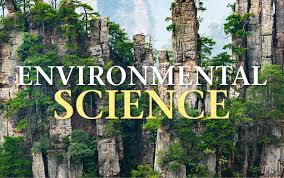Degradation and Metabolism of Pesticides in Animals
Elucidation of the metabolism and fate of organic pesticides in animals is prerequisite to the development of these chemicals for use in pest control. From a public health viewpoint, information on the chemical behavior and reactions of insecticides in living systems is essential for the assessment of hazards arising from the use of these compounds.
Metabolism studies in large animals, as well as small animals, play an essential role in this hazard evaluation. Identification and establishment of the toxicological properties of the metabolic products formed in animals after exposure to pesticides is indeed mandatory before residual hazards may be assessed.
From a more fundamental aspect, metabolism studies are necessary for our understanding of the mode of action of pesticidal chemicals, i.e., the elucidation of the intoxication and detoxication processes that occur in biological systems.
Explanations for such important phenomena as pesticide specificity and the development of pesticide resistance are often found in the intoxication and detoxication reactions that occur in the animal.
Degradation and Metabolism of Pesticides in Animals
The term ‘metabolism’ generally refers to the chemical transformation of the pesticide resulting from natural processes in the environmental system under investigation. Biological systems have evolved to survive against a wide range of environmental influences.
Read Also: Degradation and Types of Pesticides in Soils
To survive, the system needs to absorb nourishment and to defend itself against threats from chemical or biological entities. To achieve this, it has developed a wide range of enzyme and chemical defence mechanisms, which will assert themselves on any foreign compound entering the system.
Therefore, a xenobiotic entering a biological system is likely to suffer a chemical change which will facilitate its utilization or its elimination from the system.
The metabolism of organic pesticides may be divided into two large but distinct categories: (1) activation and (2) detoxication.
Activation is defined as the metabolic reaction or reactions that convert an intrinsically inactive compound to an active compound or an active compound to another active compound. In some cases a number of different toxic compounds may be produced.
Detoxicationis defined as the reaction or reactions that lead to nontoxic substances. Owing to the vastness of the subject dealing with metabolism of pesticides in animals, we shall generalize for insecticides, fungicides and herbicides rather than dwelling on individual class of pesticides. Specific examples will however be chosen to illustrate the various types of activation and detoxication reactions that take place with these compounds.
The mixed-function oxidases that require NADPH and molecular oxygen are responsible to a large degree for the activation of insecticides and for detoxication. The importance of these enzymes in metabolism will become evident in the following discussion.



